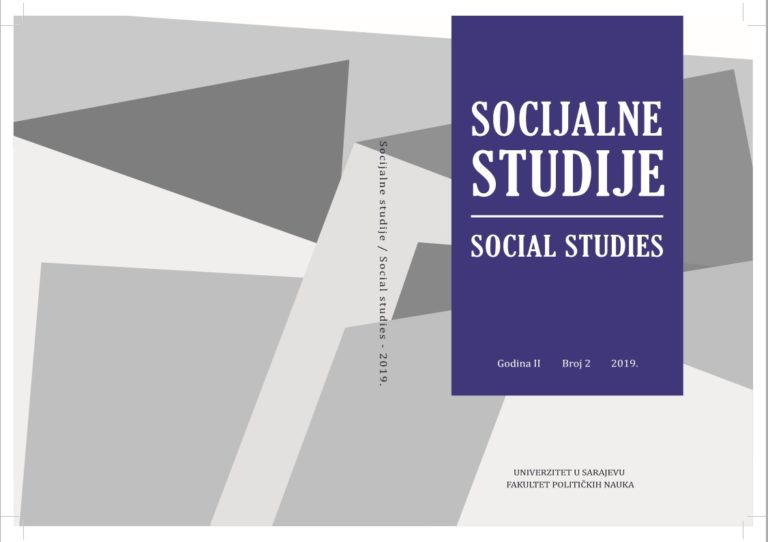ANALIZA EFIKASNOSTI PSIHOSOCIJALNOG PROGRAMA ZA POČINIOCE PARTNERSKOG NASILJA U SRBIJI
ANALYSIS OF THE EFFECTS OF PSYCHOSOCIAL PROGRAM WITH VIOLENCE ABUSERS IN INTIMATE PARTNERSHIP IN SERBIA
Author(s): Vera Despotović, Jasna H. HrnčićSubject(s): Social Sciences, Gender Studies, Psychology, Studies in violence and power, Family and social welfare, Victimology
Published by: Fakultet političkih nauka - Univerzitet u Sarajevu
Keywords: partner violence; domestic violence; perpetrator; abuser treatment; local community service;
Summary/Abstract: This paper presents the results of the research of the effects of the implementation of the Psychosocial Program with Violence Abusers in Intimate Partnerships. The aims of the research were to determine the effects of the program on the users and their family relations, the significance of each program’s topic for the users and the quality of cooperation with other services during program implementation. The sample included102 men who completed the Program in 8 cities in Serbia. The data were collected by Data Collection Protocol for Users’ Files, Evaluative Questionnaire for Program Users, and semi-structured interview with program implementers. At the Program beginning almost all users showed physical (91.2%) and/or psychological violence (98.1%), while at the program end 97.8% participants did not show any physical violence, and psychological violence was partly absent in 82.3%, and totally absent in2.0% users. The most frequent improvements were registered in areas of anger management (85.7%), irrational beliefs (84.3%) and attitudes regarding unequal power relations between genders (68.9%). The quality of communication with the partner was improved in 32.4% users, while the following was significantly rarer achieved: decrease of verbal aggression(14.7%) and increase of self-esteem (16.7%), emotional expression (beside anger) (10.8%) and parental involvement (11.8%). Users’ ratings of the topic’s significance reflect their patriarchal values. While topics Father and Child (73.5%), Responsibility (66.7%), Violence Consequences (66.7%), Violence (61.8%), Psychological Violence (59.8%), Alternatives to Violence (55.9%) and Causes of Violence (52.9%) were significant for most of the users, the topic Love and Sex was significant for only a quarter of them. The cooperation with local community services was far below the optimum needed for the Program’s success. The results were discussed in the light of contemporary findings. The results point out the complexity of phenomena of partner violence. Guidelines were offered for the improvement of prevention, repression and protection from partner violence.
Journal: Socijalne studije
- Issue Year: II/2019
- Issue No: 2
- Page Range: 35-50
- Page Count: 16
- Language: Serbian

